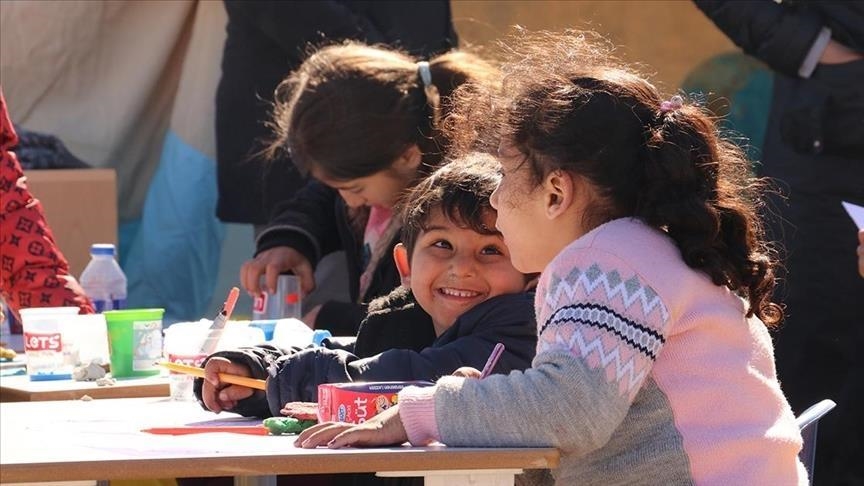

By Anadolu Agency
GENEVA
World Children’s Day this year for millions of children around the world is not about celebration but survival, according to a UNICEF spokesman, who told Anadolu that conflicts, climate crises and systemic neglect continue to devastate young lives.
“World Children’s Day should be a day of celebration and a day of reflection. For those children in Gaza and Lebanon, their day is around survival, not celebration,” said James Elder.
Five 5 million children are affected in Sudan, with 1 million under the age of 5 displaced by violent upheaval, he said. “In Ukraine, we’ve seen attacks have escalated heavily.”
“It will be a very, very heavy day,” he said on the eve of the internationally celebrated day.
From wars to mental health crises to climate, “those who pretend to be leaders have a huge amount to do,” he said, underlining the problem of impunity.
World Children’s Day, established by the UN in 1954, is observed annually on Nov. 20 to promote international togetherness, awareness of children’s rights and actions to improve their welfare. It also marks the anniversary of the adoption of the Declaration of the Rights of the Child in 1959 and the Convention on the Rights of the Child in 1989.
This year’s observance, however, comes under a dark cloud, highlighting the plight of children caught in the crossfire of global crises.
Elder urged world leaders to uphold their commitments under international humanitarian law and treaties to protect children and prioritize their well-being.
“Spend 10 minutes on World Children’s Day, to reflect on if it was their 7-year-old daughter or their 15-year-old son who was enduring these horrors, and how they would then respond and maybe use their positions of influence to respond accordingly,” he stressed.
While crises in the Gaza Strip, Lebanon and Sudan dominate the headlines, UNICEF stressed the importance of addressing all children’s struggles globally.
“There are children living in poverty in South Africa, orphans in Malawi, children enduring labor in Bangladesh, and mental health crises in Sydney. A child is a child, no matter where they are,” said Elder.
He added that people with influence in those settings and local government families need to stay, take a step on World Children’s Day and see what else they can do to improve the children around them.
Regarding the challenges the media and international organizations face ensuring balanced attention to children in need globally — as new conflicts overshadow the previous crises, he said: “The evidence and data are there, but the news cycle is often more hysterical than substantial. If we have serious hopes for a better coming 10 or 20 years, then psychological and physical investments have to be made.”
We use cookies on our website to give you a better experience, improve performance, and for analytics. For more information, please see our Cookie Policy By clicking “Accept” you agree to our use of cookies.
Read More